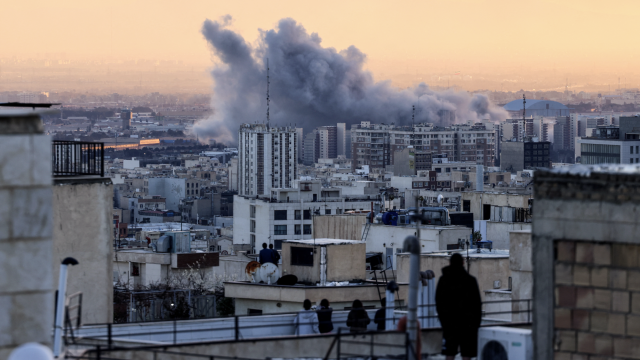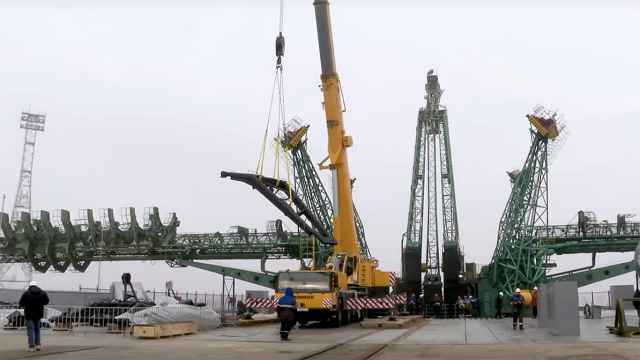ALMATY, Kazakhstan — An Uzbek militant group linked to al-Qaida unveiled a new leader this week following the death a year ago of his predecessor, Central Asia's most wanted Islamist fighter, and called for a holy war in southern Kyrgyzstan.
Usman Adil described himself as the new leader of the Islamic Movement of Uzbekistan in a statement published on an unofficial rebel web site, Furqon.com, believed to be the group's main communication platform.
He said the IMU's former leader, Tahir Yuldashev, had been killed by a U.S. drone missile on Aug. 27, 2009, in South Waziristan, a region of Pakistan close to the Afghan border where most of the group's exiled fighters had been concentrated.
Reuters could not independently verify Tuesday's statement.
Yuldashev headed a militant underground opposed to Uzbekistan's government and was sentenced to death in absentia after his forces joined the Taliban's fight against U.S.-led troops in 2001. He later fled to the Waziristan region.
Two undated photographs posted on the web site showed Yuldashev, alive in one and apparently dead in the other. In one photograph, he is speaking into a microphone with the tip of an automatic weapon visible behind him. In the second, his eyes are closed.
While Yuldashev's death is likely to be welcomed by secular governments in Central Asia, the plans of his little-known successor are not clear.
Opinion among political analysts was divided over whether the IMU might try to infiltrate back into the Ferghana Valley, where three Central Asian republics intertwine, in the wake of the bloodshed in southern Kyrgyzstan in June in which at least 370 people were killed.
Adil, pictured with a thin beard and dark hair spilling from beneath a white turban, said the violence was a tragedy caused by "sinister and evil plots against Muslims organized by heretic governments."
Kyrgyzstan plans elections on Oct. 10 that would create the first parliamentary democracy in Central Asia, but the interim government's hold on power in southern regions has been fragile ever since it assumed control after a popular revolt in April.
"What's very interesting in the new IMU approach is the shift in emphasis towards Kyrgyzstan," said Christopher Langton, an independent regional specialist. "There is a question of whether this is a sign that the IMU are going to up their game in the area after they were defeated in Afghanistan."
But Adil's statement on Kyrgyzstan followed a long explanation for the delay in declaring Yuldashev's death. Hemmed in by fierce fighting, the IMU was unable to communicate the news earlier, he said. Pakistani intelligence agency officials announced Yuldashev's death in October last year.
Paul Quinn-Judge, the Bishkek-based Central Asia director for the International Crisis Group, said the initial comments suggested that the IMU could maintain its policy of Afghanistan first, and the rest of Central Asia second.
"It does not look like they view Osh as their golden opportunity," he said, referring to the epicenter of the Kyrgyz violence. "It looks more like a previous line, where they were faintly embarrassed by the Muslim-on-Muslim violence."
A Message from The Moscow Times:
Dear readers,
We are facing unprecedented challenges. Russia's Prosecutor General's Office has designated The Moscow Times as an "undesirable" organization, criminalizing our work and putting our staff at risk of prosecution. This follows our earlier unjust labeling as a "foreign agent."
These actions are direct attempts to silence independent journalism in Russia. The authorities claim our work "discredits the decisions of the Russian leadership." We see things differently: we strive to provide accurate, unbiased reporting on Russia.
We, the journalists of The Moscow Times, refuse to be silenced. But to continue our work, we need your help.
Your support, no matter how small, makes a world of difference. If you can, please support us monthly starting from just $2. It's quick to set up, and every contribution makes a significant impact.
By supporting The Moscow Times, you're defending open, independent journalism in the face of repression. Thank you for standing with us.
Remind me later.





